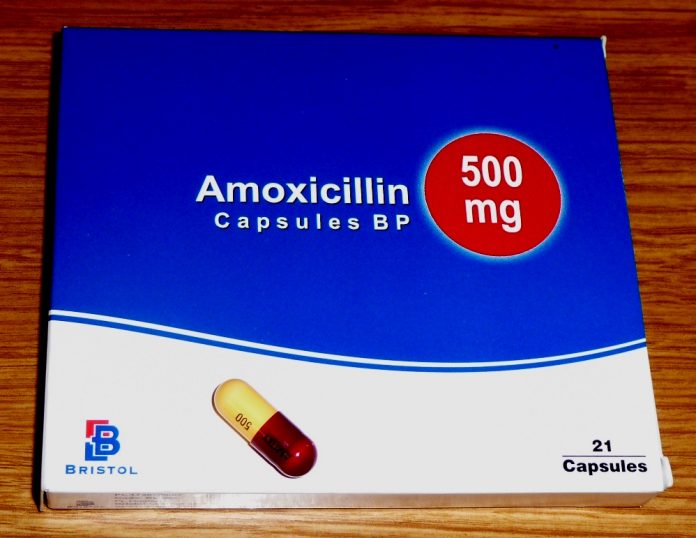
Oral thrush is a common mouth infection. Though it may look extremely unpleasant, it’s really easy to treat, once it’s diagnosed correctly.
You cannot treat oral thrush with amoxicillin. You’ll have to use some form of antifungal medication, and we’re going to go through that shortly. But first, a bit about the symptoms of oral thrush.
Oral thrush
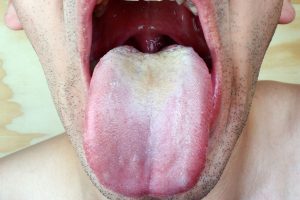 Oral thrush, also known as pseudomembranous candidiasis, is the most common form of oral candidiasis (fungal infection caused by a fungus called candida albicans), accounting for 35% of all cases.
Oral thrush, also known as pseudomembranous candidiasis, is the most common form of oral candidiasis (fungal infection caused by a fungus called candida albicans), accounting for 35% of all cases.
Symptoms
Regardless of the cause, this mycosis usually shows the same common symptoms: creamy white patches in the mouth, gums, tonsils and throat, swelling of the oral tissue and sometimes lesions of the mouth.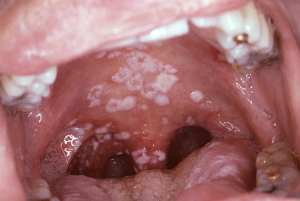
While most of the times these ugly patches are the only symptoms, occasionally more severe signs might appear, depending on how bad the infection is. A blistering sensation in the mouth, loss of taste, difficulty swallowing (if the infection is localized in the throat) and hoarseness (if the trachea and the larynx are infected) are all possible signs of oral thrush. Left untreated, the candida in the mouth may move to other regions of the body, leading to even worse conditions such as infections of the lungs or the intestines. However, such cases are rare and usually happen to those whose immune systems are weakened and who neglect the initial symptoms.
Amoxicillin for Oral Thrush
Amoxicillin is a penicillin antibiotic used to treat a wide range of infections, from pneumonia 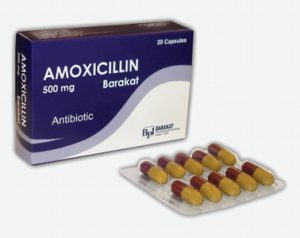 to gonorrhea. However, it is not antifungal, and it won’t be prescribed for oral thrush.
to gonorrhea. However, it is not antifungal, and it won’t be prescribed for oral thrush.
In fact, a long course of antibiotics is a common cause of oral thrush, since they kill the beneficial bacteria in your mouth, thus allowing the candida colonies to grow freely.
To cure thrush, you’ll need to use some sort of antifungal treatment.
The Correct Thrush Treatment
Gels & Drops
Probably the most common treatment is to apply an antifungal gel (such as miconazole) or anti-fungal drops (nystatin). Regardless of which one you choose, you’ll have to apply it four times a day over the infected regions. The typical length of such treatments is five to seven days.
Pills
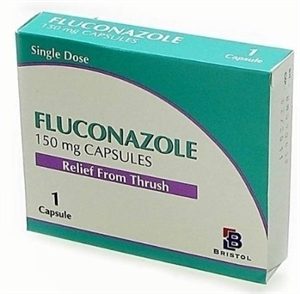 Another way to treat oral thrush is taking pills. Most doctors will generally recommend this type of treatment if the condition persists after the use of nystatin or miconazole. Antifungal tablets contain a compound called fluconazole. You’ll usually have to take them for a week, but some severe cases may ask for longer cures of up to two weeks.
Another way to treat oral thrush is taking pills. Most doctors will generally recommend this type of treatment if the condition persists after the use of nystatin or miconazole. Antifungal tablets contain a compound called fluconazole. You’ll usually have to take them for a week, but some severe cases may ask for longer cures of up to two weeks.
The most commonly-used fluconazole pill is Diflucan, but you can also find it under the generic label Fluconazole. The common dose is 150 mgs per day for teenagers and adults, with doses for children under 13 being determined on a per kg basis.
Home treatments
Active compounds in natural ingredients have been shown to cure oral thrush by directly 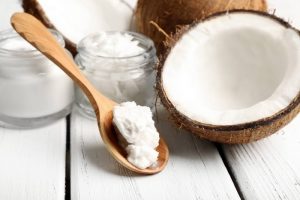 affecting the candida albicans colonies in your mouth. Most of these solutions are applied locally, directly on the affected region. There is no clearly determined period of treatment, as the strength of the solution plays an important role. If your home remedy of choice seems to be ineffective after a few days of use, you may want to consult a doctor.
affecting the candida albicans colonies in your mouth. Most of these solutions are applied locally, directly on the affected region. There is no clearly determined period of treatment, as the strength of the solution plays an important role. If your home remedy of choice seems to be ineffective after a few days of use, you may want to consult a doctor.
Some essential oils have been shown to have antifungal properties and lower the spread of thrush. The most commonly-used is coconut oil. You’ll have to apply extra-virgin coconut oil on the affected areas with a cotton swab, usually 2-4 times a day, until you’re happy with the results.
Other home remedies include yogurt, baking soda and apple cider vinegar. They’re all applied locally, and yogurt and apple cider vinegar may also be consumed, either alone or mixed with other ingredients.
Conclusion
Amoxicillin is not a good way to treat thrush, and it’s even likely to worsen the symptoms. You’ll want to use a proper antifungal such as fluconazole or nystatin, or you may even use home remedies. Whatever you do, consult your doctor, and never take antibiotics to treat yeast infections.
Resources:
http://www.nhs.uk/conditions/Oral-thrush—adults/Pages/Introduction.aspx
https://www.drugs.com/amoxicillin.html
http://www.webmd.com/oral-health/guide/dental-health-thrush
http://www.emedicinehealth.com/oral_thrush/page4_em.htm#how_is_oral_thrush_treated
http://patient.info/health/oral-thrush-yeast-infection
http://www.top10homeremedies.com/home-remedies/home-remedies-for-oral-thrush.html

